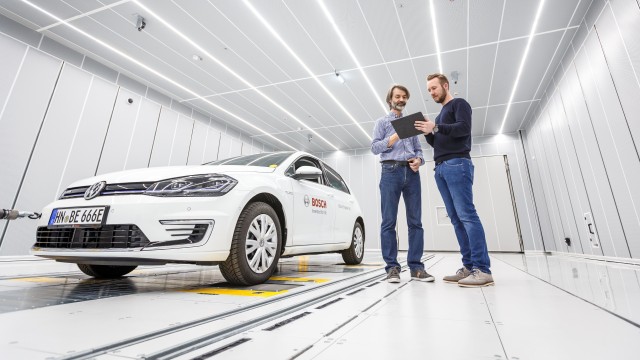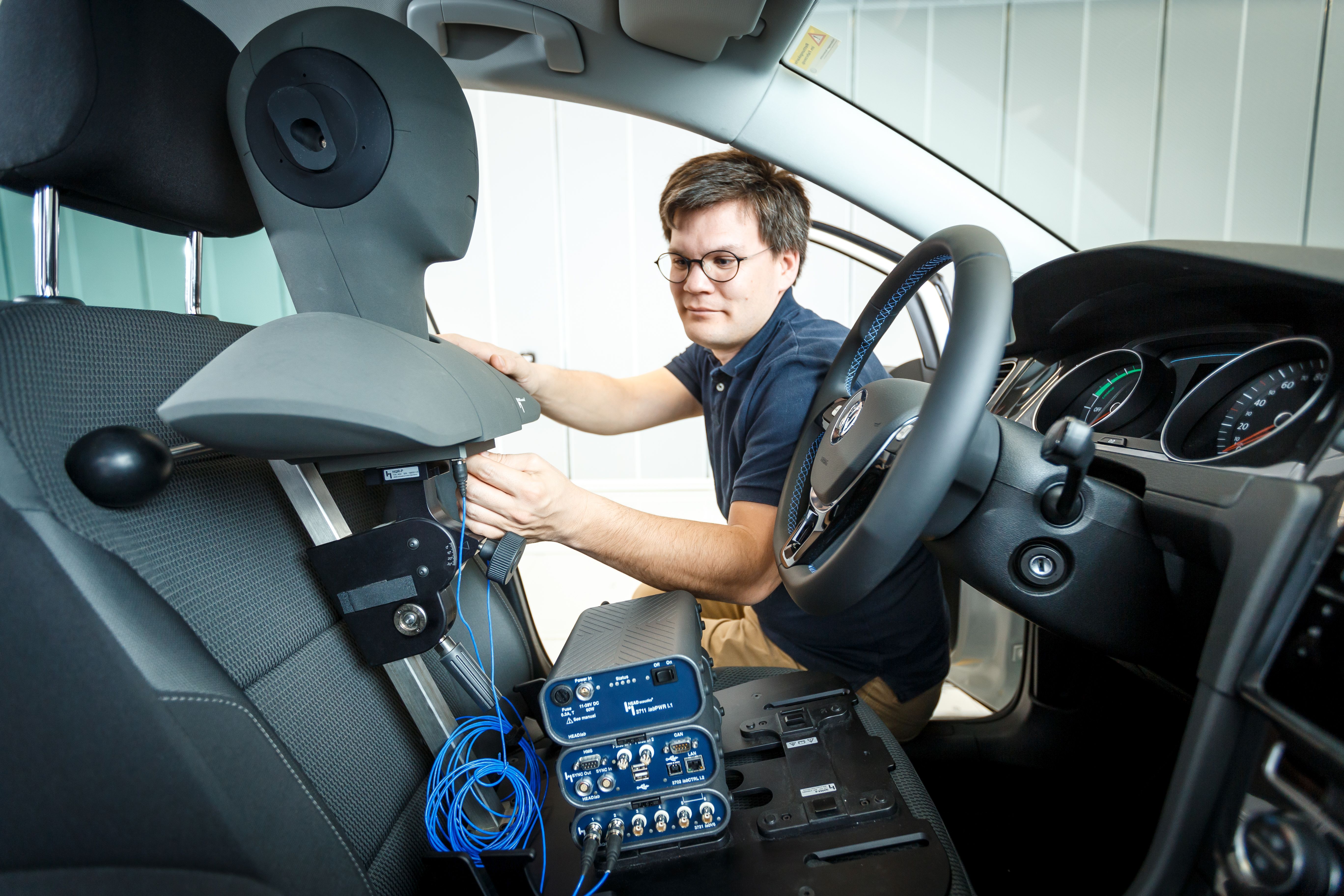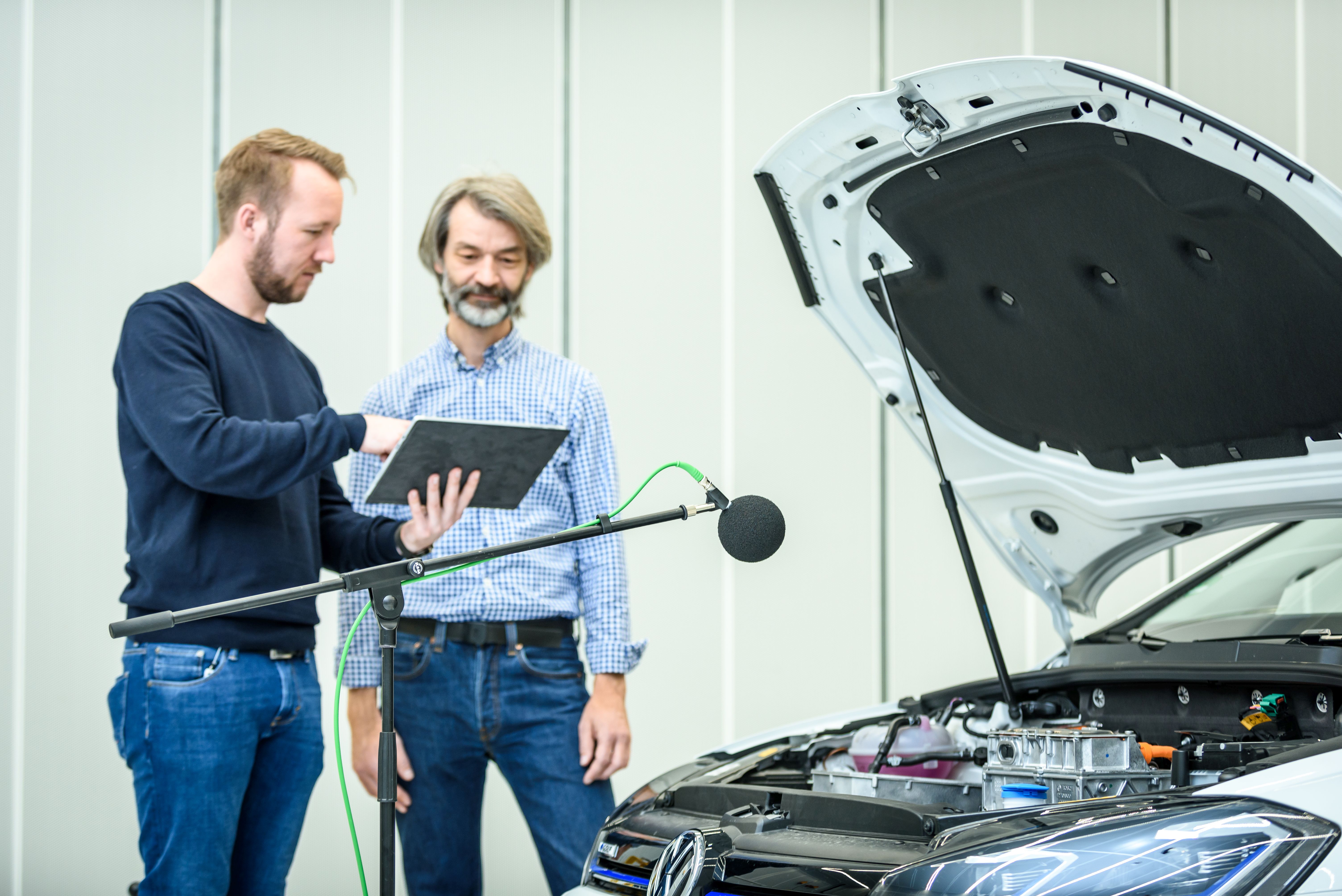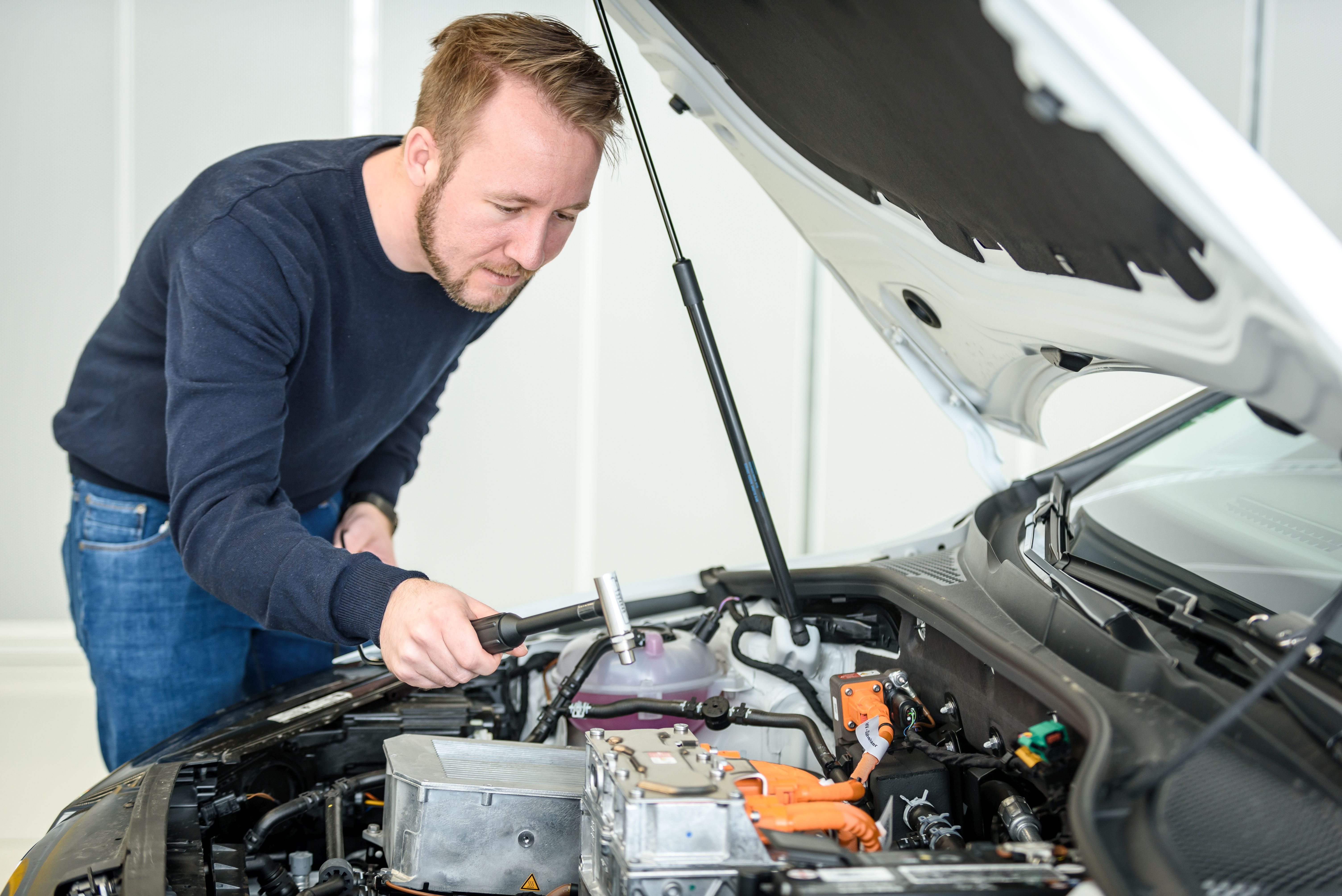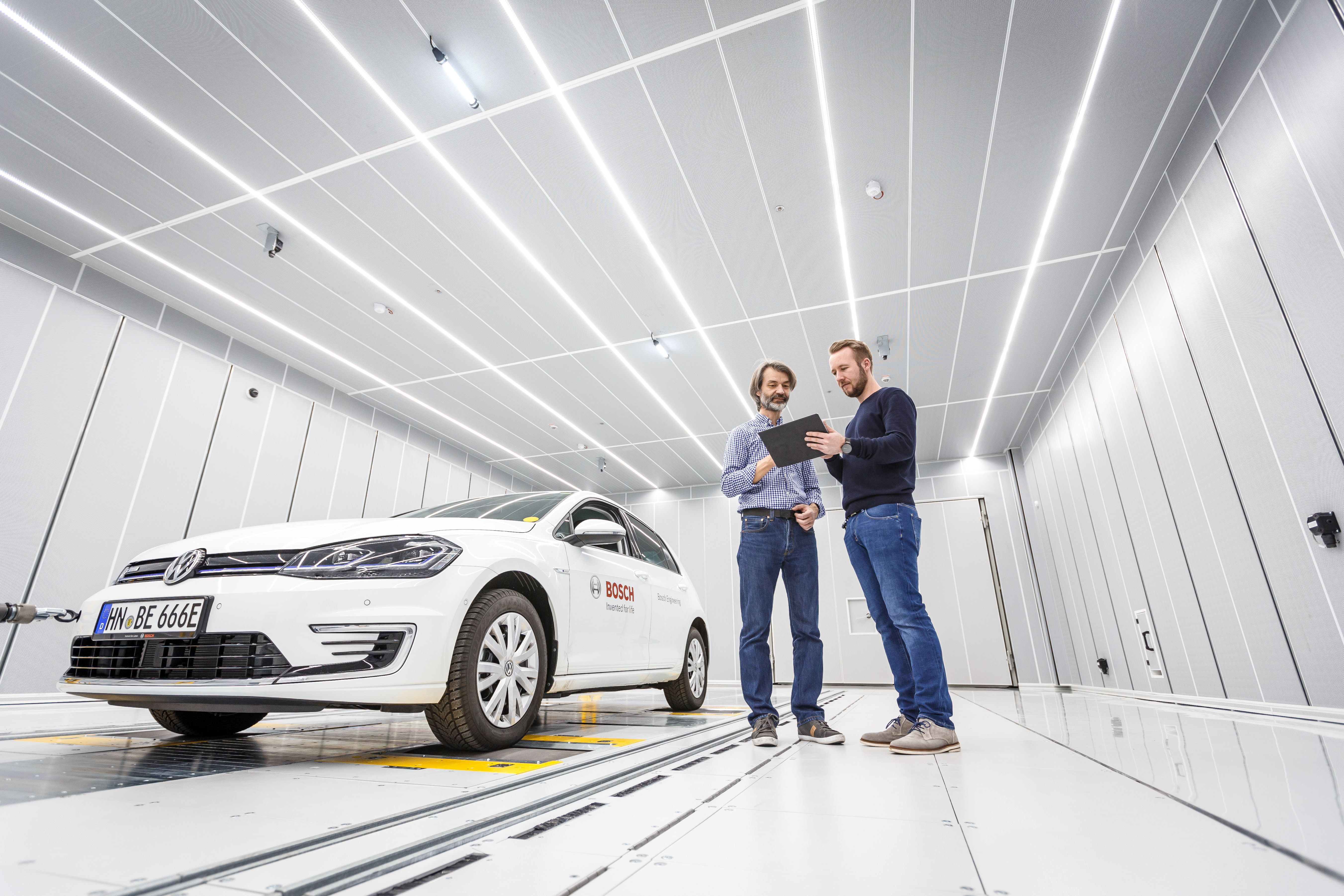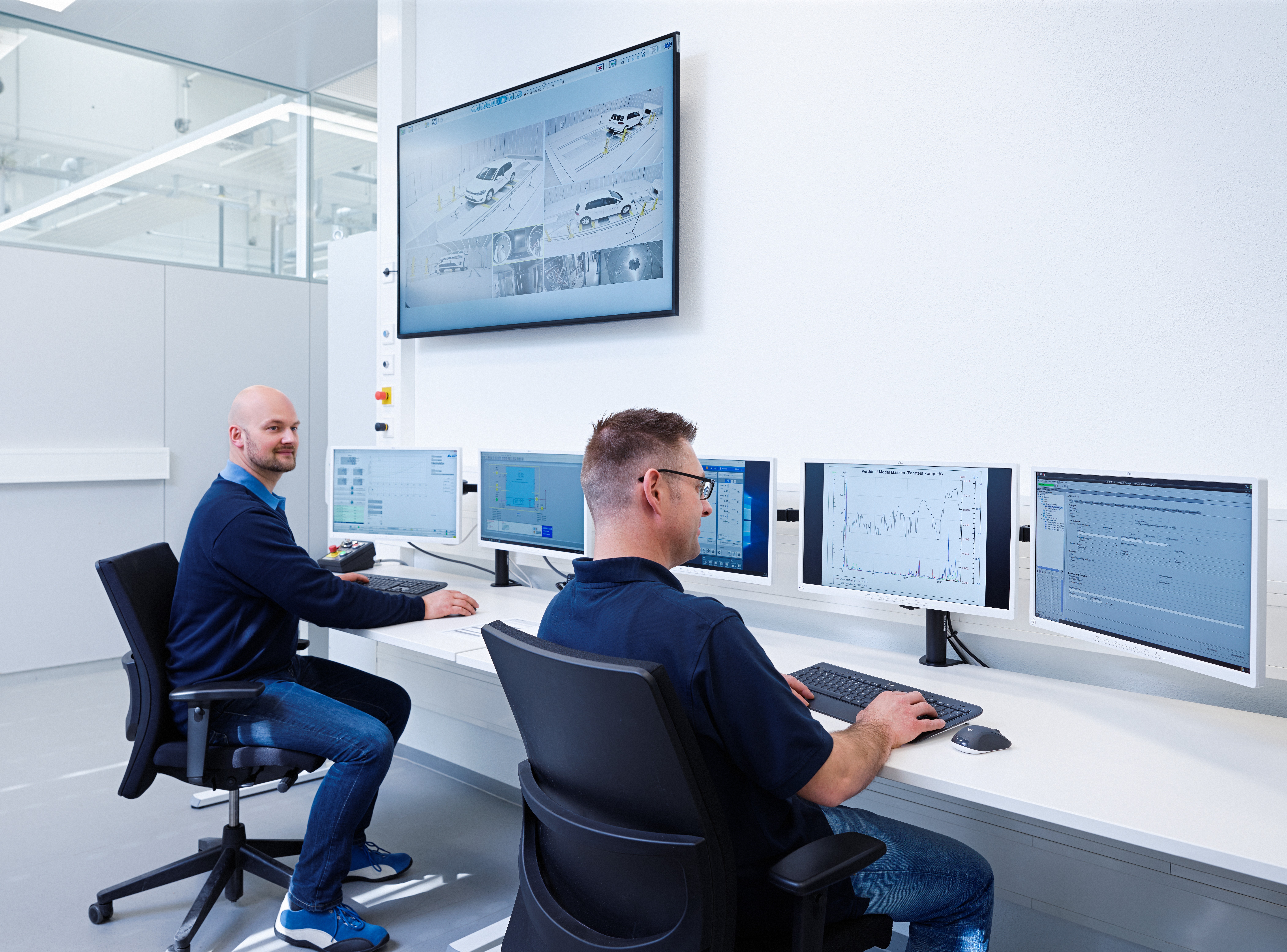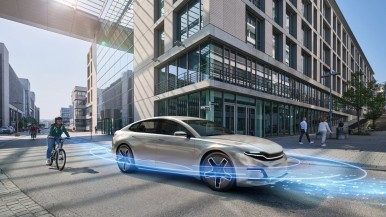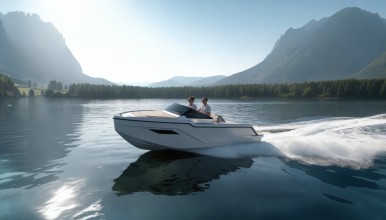Abstatt – Vehicle acoustics are steadily gaining traction as a quality criterion in today’s cars. When a vehicle is in motion, audible or perceptible vibrations emanating from individual components can cause annoying automotive noise conveyed by the vehicle’s structure and rendered as airborne sound. Acoustics experts refer to this phenomenon as NVH, which is short for noise, vibration, harshness. Minimizing noise with NVH analyses is a fixture of automotive engineering. „The increasing shortening of development cycles requires an ideal integration of acoustic optimization into existing development processes,” says Jörg Vetter, Senior Manager, New Calibration Services & Products at Bosch Engineering, the Robert Bosch GmbH subsidiary specialized in development services for vehicle and engine manufacturers. With this new acoustics test center in Abstatt, the company is setting the stage for an efficient development process to improve NVH. It will enable development times to be reduced still further while enhancing vehicle acoustics.
About Bosch Engineering GmbH
Bosch Engineering GmbH is a wholly owned subsidiary of Robert Bosch GmbH and is head-quartered in Abstatt, Germany. As a systems development partner to the automotive industry since 1999, the company with its more than 2,800 associates offers development services for powertrains, safety and convenience systems, and electrical and electronic systems – from the original concept to series production. Specialized in electronics and software, it draws on Bosch’s proven large-scale series production technology to develop tailored solutions for a wide variety of applications in passenger cars, commercial vehicles, off-highway and recreational vehicles, and in rail applications, ships, and industry. Bosch Engineering GmbH also coordinates all the Bosch Group’s motorsports activities.
Additional information can be accessed at www.bosch-engineering.com.
The Bosch Group is a leading global supplier of technology and services. It employs roughly 412,000 associates worldwide (as of December 31, 2025). According to preliminary figures, the company generated sales of 91 billion euros in 2025. Its operations are divided into four business sectors: Mobility, Industrial Technology, Consumer Goods, and Energy and Building Technology. With its business activities, the company aims to use technology to help shape universal trends such as automation, electrification, digitalization, connectivity, and an orientation to sustainability. In this context, Bosch’s broad diversification across regions and industries strengthens its innovativeness and robustness. Bosch uses its proven expertise in sensor technology, software, and services to offer customers cross-domain solutions from a single source. It also applies its expertise in connectivity and artificial intelligence in order to develop and manufacture user-friendly, sustainable products. With technology that is “Invented for life,” Bosch wants to help improve quality of life and conserve natural resources. The Bosch Group comprises Robert Bosch GmbH and its roughly 490 subsidiary and regional companies in over 60 countries. Including sales and service partners, Bosch’s global manufacturing, engineering, and sales network covers nearly every country in the world. Bosch’s innovative strength is key to the company’s further development. At 136 locations across the globe, Bosch employs some 82,000 associates in research and development.
Additional information is available online at www.bosch.com, www.bosch-press.com.
